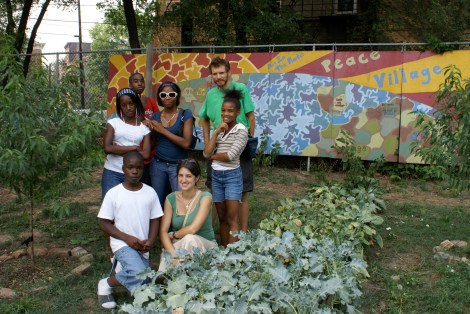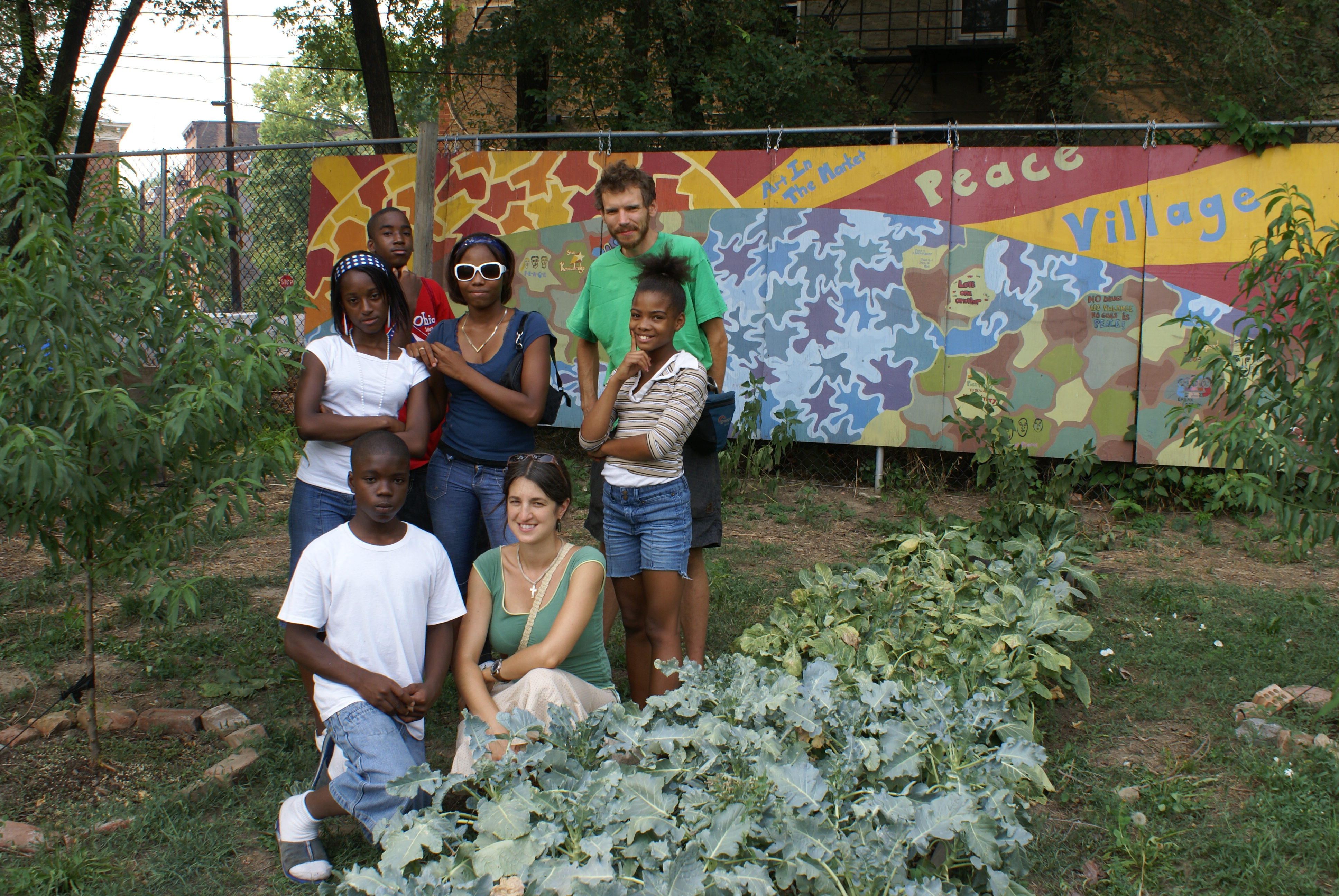
Permaganic
There is one thing no gardener wants to hear: “Don’t plant this spring.” But that’s the word Angela Stanbery-Ebner received in February while plotting out the year’s crops at her garden in urban Cincinnati. No tomatoes this year, no chard, no selling at the farmers market, no community-supported agriculture operation run by neighborhood youth for low-income families.
Stanbery-Ebner’s garden, known as the Eco Garden, isn’t your standard backyard fare. It’s an agricultural oasis in a Cincinnati neighborhood better known for its crime than its heirloom carrots. Unfortunately for the Eco Garden, it doesn’t own the land on which it sits, the city does. This year, as part of its initiative to encourage urban development — known as CitiRama — the city started eyeing it for housing.
When the gardeners got the news, “we were basically devastated,” Stanbery-Ebner says. Out went the emails, an online petition, and calls to the city council in an effort to save one of the most vibrant corners of a rough-around-the-edges neighborhood.
The Eco Garden had been operating since 1998 in a neighborhood called Over the Rhine — the Rhine being a nickname for the canal separating the neighborhood from downtown Cincinnati. The area is home to historic buildings, a farmers market, breweries, and in 2006 boasted the highest crime rate in the city, according to city council documents. In the garden, local kids learned to grow food, manage a community-supported agriculture operation, and handle customer accounts.
Angela Stanbery-Ebner and her husband Luke got involved the educational programs in 2004, fresh out of art school at the University of Cincinnati. Six years later, when the nonprofit managing the garden folded, the couple took over, rolling it into their own nonprofit called Permaganic in a nearly seamless transition. “We were basically able to shut down operations for the month of August, then some of the kids came right back to the program again,” Stanbery-Ebner says triumphantly.
“I just love it,” says Janice Williams, a nearby resident. “When you walk past it, you see all these beautiful foods.” Williams’ grandson Robert started interning at the garden a few years ago and immediately took to it. “We call him the ‘tiller of the ground’ because he has such a knack for growing things,” she says.
Now Robert has a garden at home, too. He rises early to harvest and get produce ready to sell at the farmers market. The fresh food they have at home is a big bonus, says his grandmother, and now Robert, who is 18, is taking his 12-year-old sister, Mary, to the garden as well. She says she loves growing strawberries and kale. The only downside to gardening? “Getting dirty,” she says — “but it’s worth it.”
As the city’s development plan was originally proposed to the Ebners, all that would have been lost. You don’t just pick up 15 years of soil development — an entire miniature agricultural ecosystem — and plop it down in a new spot. Stanbery-Ebner notes that Permaganic also had grants and donations for garden improvements scheduled for 2013.
It’s not that the Ebners are opposed to urban development, Stanbery-Ebner says. But some development “doesn’t always match with the values of the existing community.”
Her flood of emails to supporters got results. She showed up at a city council committee meeting with 22 supporters and an online petition hit 292 signatures. “Really quickly, what we saw — which was pretty amazing to us, we’ve never spent time on promotions — immediately people started pulling together,” she says.
Permaganic found a champion in councilmember Laure Quinlivan. Quinlivan filed a motion with the city arguing that “as the longest-running urban agriculture program in Cincinnati, Eco Garden has substantially added to the quality of life in Over the Rhine by expanding residents’ access to fresh local produce, and providing training programs for hundreds of local teenagers.” Quinlivan’s motion required that the Eco Garden be incorporated into future development on the site and also asked the city to find an additional place where the garden might expand.
Quinlivan says that, like Stanbery-Ebner, she’s not opposed to housing development in the urban core. She just didn’t feel that the CitiRama backers were considering all the impacts of their proposal. “The smartest thing we can do is incorporate green [within city development],” she says.
On March 12, the city council’s Livable Communities committee voted with Quinlivan’s motion. And this week, Stanbery-Ebner says she received notice that the CitiRama would be held on another plot of land instead.
So planting begins this spring as planned. Stanbery-Ebner says this year’s crops include greens, herbs, several varieties of heirloom tomatoes, and a host of other fruits and veggies. The interns can return, the shoots can sprout, the tomatoes can grow — and this time, Over the Rhine is in the news for something other than its crime stats.




